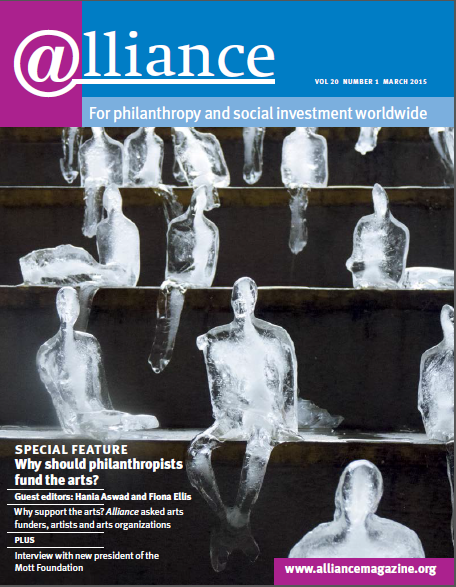Responses to Michele Fugiel Gartner and Daniel Overall, ‘The trouble with transformation creep’
‘Whether interventions come through the lens of philanthropy, humanitarianism or economic development, we risk losing much by judging all social initiatives against the standard of transformation.’
Is ‘transformation creep’ a problem in the philanthropic and non-profit sectors? First, let’s look at what might be creeping. When we speak of ‘transformation’, we think of creating lasting change: not helping drowning people to get out of rushing streams, but going upstream to stop the villains who are pushing people in. A drowning family, though, might define transformation in terms of being able to live so they can continue to transform the world in their own way. So, who gets to define what transformation is?
When people in philanthropy and those who depend on their largesse talk about transformation, we typically mean changes to systems that determine how power works: political or policy change, in the broad sense. We think of meetings, demonstrations and communications initiatives. These budgets tend to be dominated by meeting supplies, overhead and – much more than anything else – salaries and travel for ‘thought leaders’, who turn out to be a lot like us. We can become trapped in echo chambers where the communities we ultimately hope to empower are represented only by people who risk losing their grants or salaries if they go against the grain.
Providing for people’s tangible and individual needs, and transforming society in grander and more abstract ways, are both worthy goals
Gartner and Overall point out that when we focus on ‘transformation’ to the exclusion of ‘charity’, we devalue the support of basic human necessities. They also point out that donors can become committed to transformation as a result of their charity work, that transformative initiatives can grow out of basic service projects, and that ‘Those who provide services … are the doorways to a wealth of transformative data’. But I’m getting at a different point.
Just as we apply a political lens to the wider society, we could benefit from a more sustained application of a political lens to our own work. We might consistently ask ourselves, ‘Who is defining transformation in this setting? Who is actually benefiting from that definition?’
When we think in terms of dichotomies like transformation vs charity, we tend to oversimplify, and to value one side of the coin over the other. We become comfortable, and forget to look at the broader context. Providing for people’s tangible and individual needs, and transforming society in grander and more abstract ways, are both worthy goals, depending on the context of the work. It’s that context – and particularly the power relations interwoven with that context – that we need to pay more attention to.
What is transformation for us might well leave intact, or even nurture, relationships and structures that undermine the interests of the communities we aim to serve.
Max Niedzwiecki
Principal, Daylight Consulting Group



Comments (0)